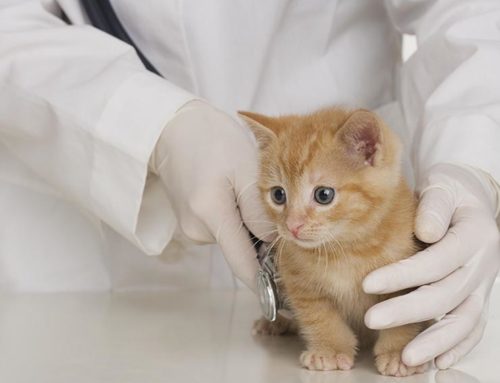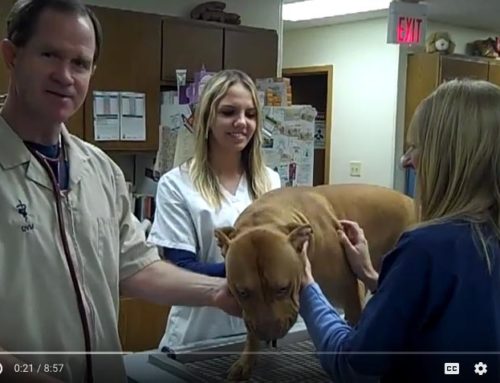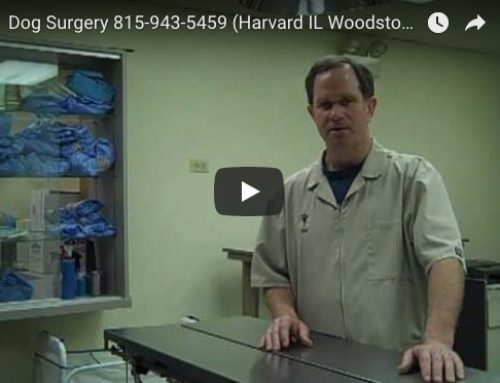Puppy Dog Vaccinations
Here at the Harvard Veterinary Clinic, Dr. Costello (or Dr. Svoboda) performs pet wellness exams on every animal (on an annual basis) when they receive their immunizations. We also recommend that the pets receive these examinations on a 6-month basis in order to follow along with the progress of the animal. With a dog (for example) that reaches the age of 7 or 8, this procedure becomes more and more important because things change very rapidly at that time. This is due to the fact that a dog’s life span only lasts about 11-13 years. As they get past the age of 7, there’s a greater increase in the possibility for health complications to develop. It’s a little bit similar to how humans can develop health issues when they get older and need to have these needs monitored more carefully.
Sienna the dog is going to be receiving her dog immunizations in this video. She’s going to be receiving her 6-way distemper injection. This includes coverage for leptospirosis and bordetella. She is also going to be getting her rabies shot. Sienna is also having a blood draw that is being done in order to check her for heartworms. The blood draw that is done causes no fuss for Sienna because it is done in an area that has few sensory receptors. This heartworm check will include an early-detection profile (done on an annual basis) that will be done at that time. This blood draw includes a CBC (complete blood count). This will check Sienna for white blood cell count abnormalities, red blood cell count abnormalities, liver functions, kidney functions, blood potassium levels, blood glucose, electrolytes, and platelet functions. These dog shots also give Sienna the immunizations that are needed for hepatitis and canine parainfluenza. You can see in the video that there are injections that are given in her back legs. These canine shots cause minimal discomfort to Sienna the dog.
The Bordetella inoculation goes in her nose. All of the pets that are admitted to our clinic are given bordetella vaccines because we don’t want any of our patients to be exposed to kennel cough (Infectious Tracheobronchitis). We want to make sure that all of the animals are healthy when they come in and healthy when they leave.




